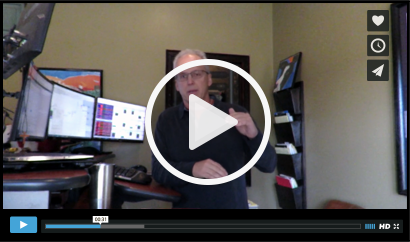With QLGC as much as $5 over the strike price on the covered call play initiated in the 8/17 report, what is the risk of the call being exercised? An American option can be exercised at any time. But in actual practice, are calls exercised only in the expiration month?
You are correct that in our system an option can be exercised at any time before expiration unlike the English system where they are exercised on the day of expiration. Thus anytime an option is in the money, the odds of it being exercised increase. The odds of being called out are greatest closer to expiration because there is less time value associated with the option. Example: A stock is trading at $45 and an investor thinking of buying the stock in the future purchases a $45 call option for $2. There is no incentive to buy the stock then as it would be the same as buying the stock for $47: $2 for the option plus $45 per share. Say the stock runs to $50. The option is now worth $7 ($2 time value + $5 intrinsic value). The incentive is to go ahead and sell the option and have a $5 gain as opposed to exercise the option and have a $3 gain (buy the stock at $45 & sell for $50 less the $2 option cost). If the stock stays at $50, as expiration approaches that $2 time value that was paid for the option evaporates until at expiration there is no time value just intrinsic value. In other words, at expiration the option is worth $5 because it is $5 in the money and there is no time left so no time value. At that point the incentive for the option holder is equal: sell the option for a $3 gain ($5 option value – $2 cost) or exercise the option, buy the stock at $45 so you can sell at $50 and again make $3 (50-45-2=3). If the option was bought with the intent of ultimately buying the stock, then at expiration there is finally some incentive to exercise the option.
The most common situation is a market maker that buys the option to make a market in it and has was unable to sell all positons before expiration. He or she won’t exercise it before expiration due to that time value cost he has in it (more lucrative to sell the option if he can). Only if the option gets deep in the money and he feels the stock may head back down will he exercise it before expiration; in other words, if he thinks it will fall he will try to capture the higher value by exercising if he cannot sell it. Usually a market maker can sell it. If not, then he gets close to expiration, and rather than let the option he bought expire, he will exercise it and take whatever gain he can.
Thus, while the chance of being exercised ahead of expiration rises the deeper in the money the option gets, the incentive to exercise really picks up close to expiration. If we see the stock is $5 or so in the money and we can get a good premium on another covered play, we can buy the option back at a reduced price (no time value) and then sell the other call and get that next premium.

